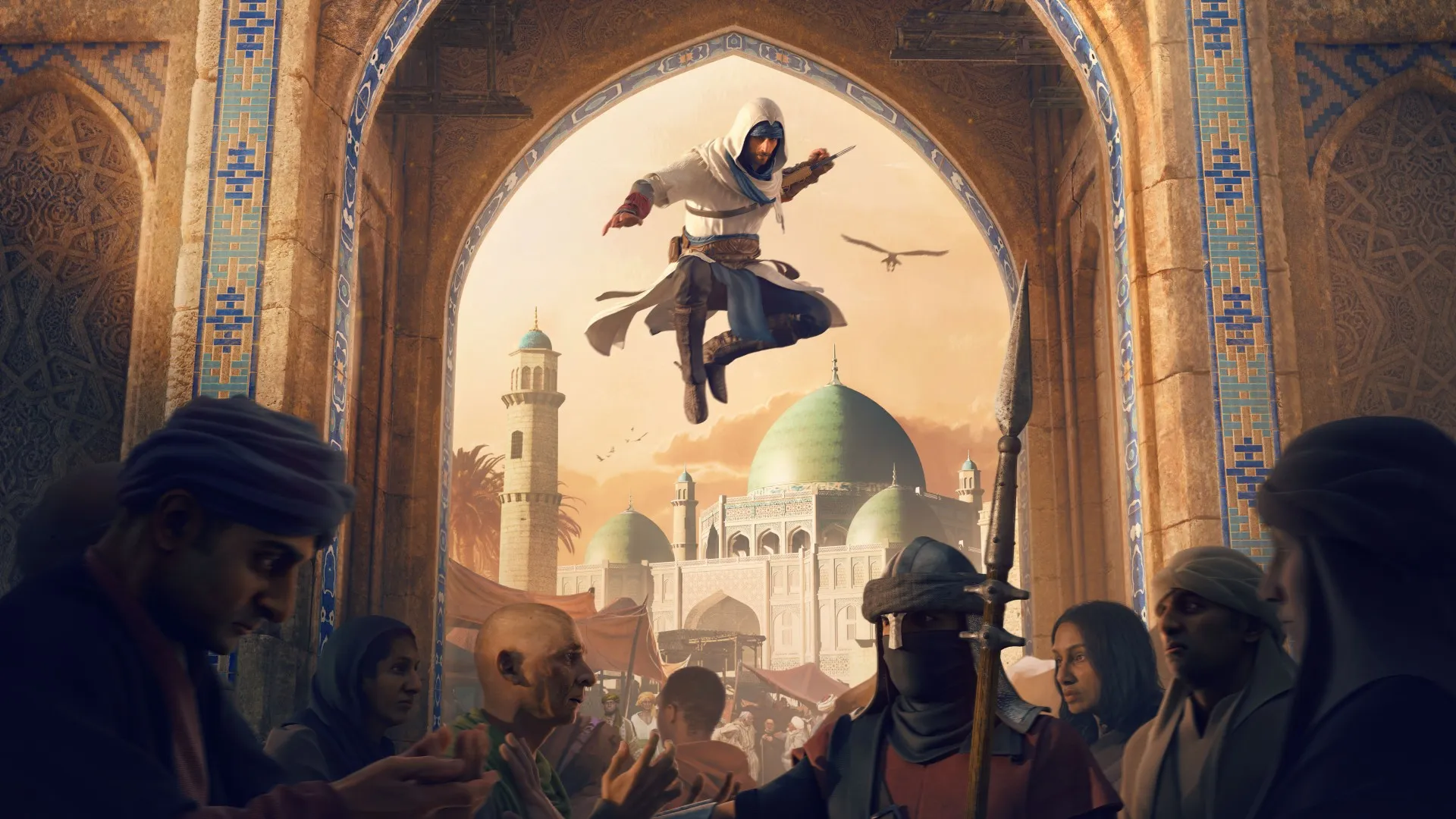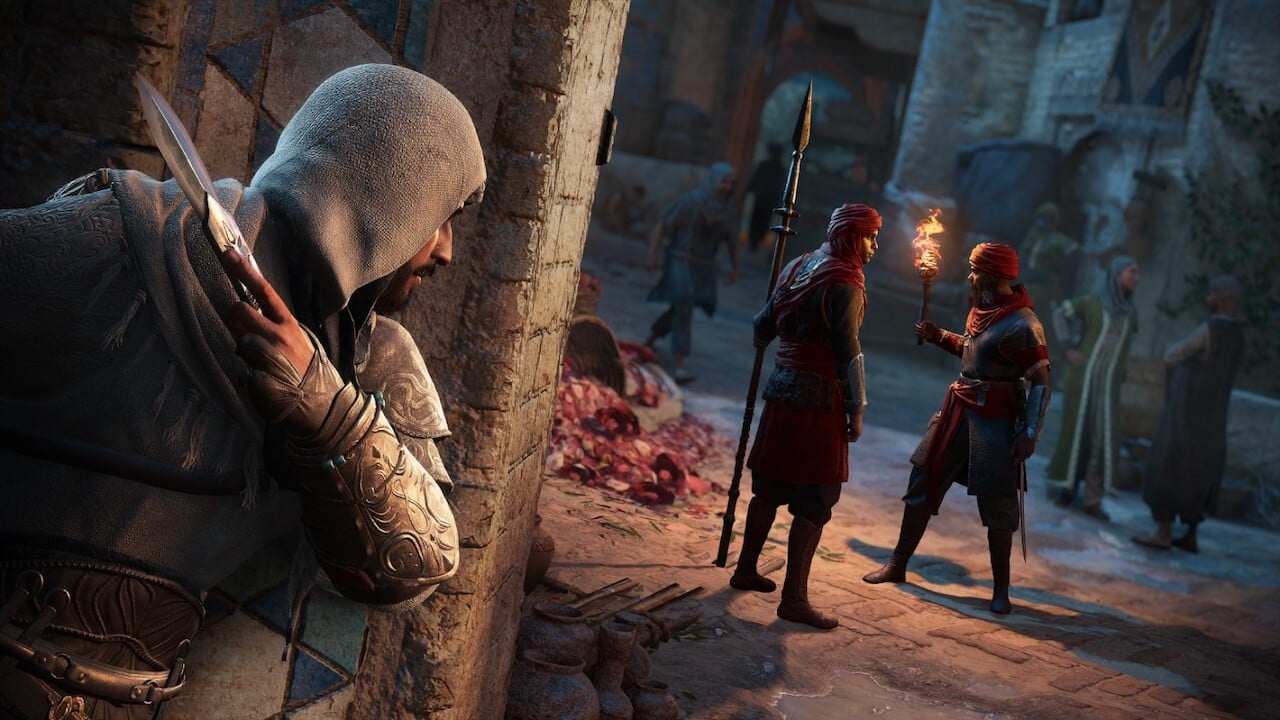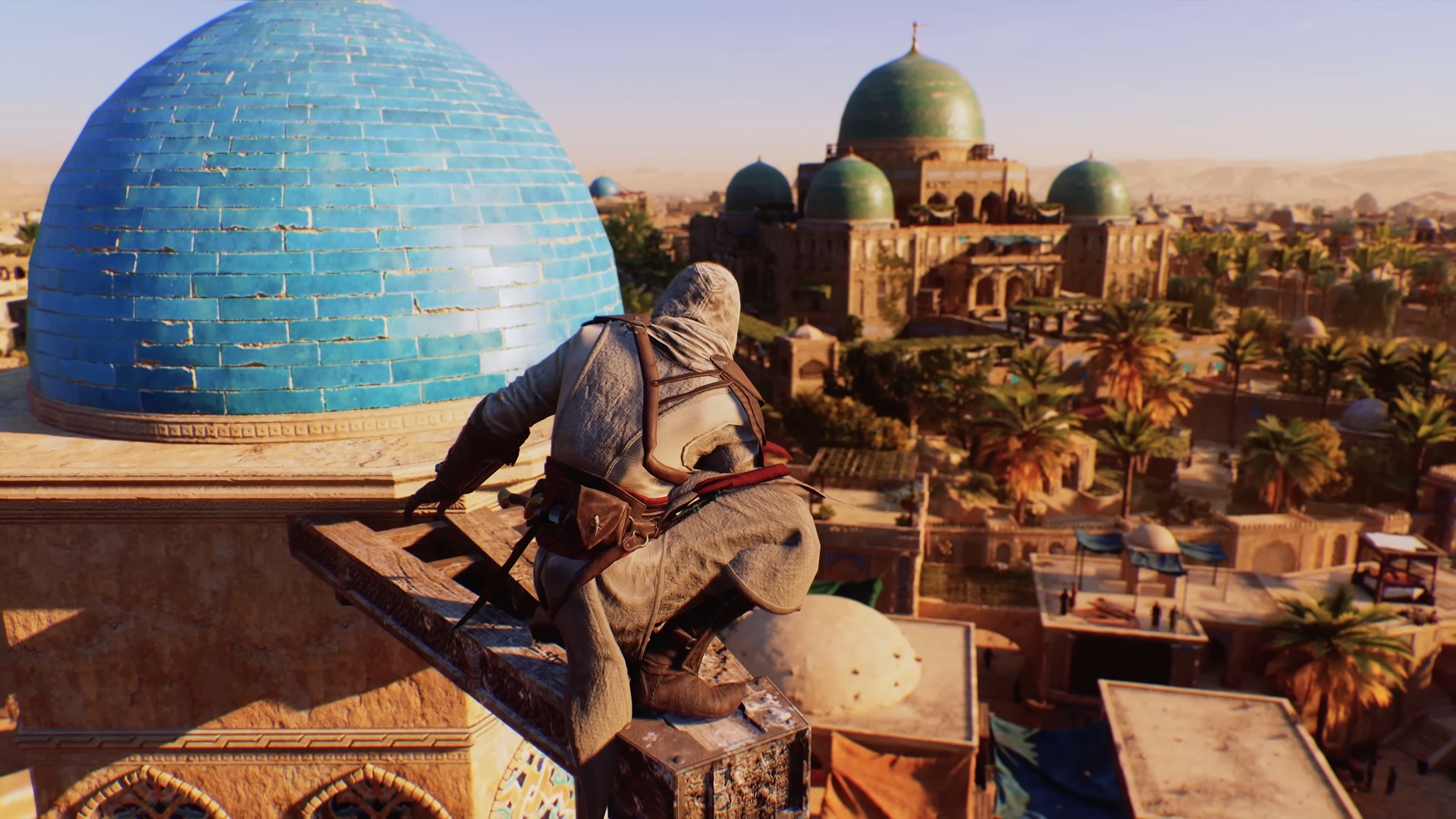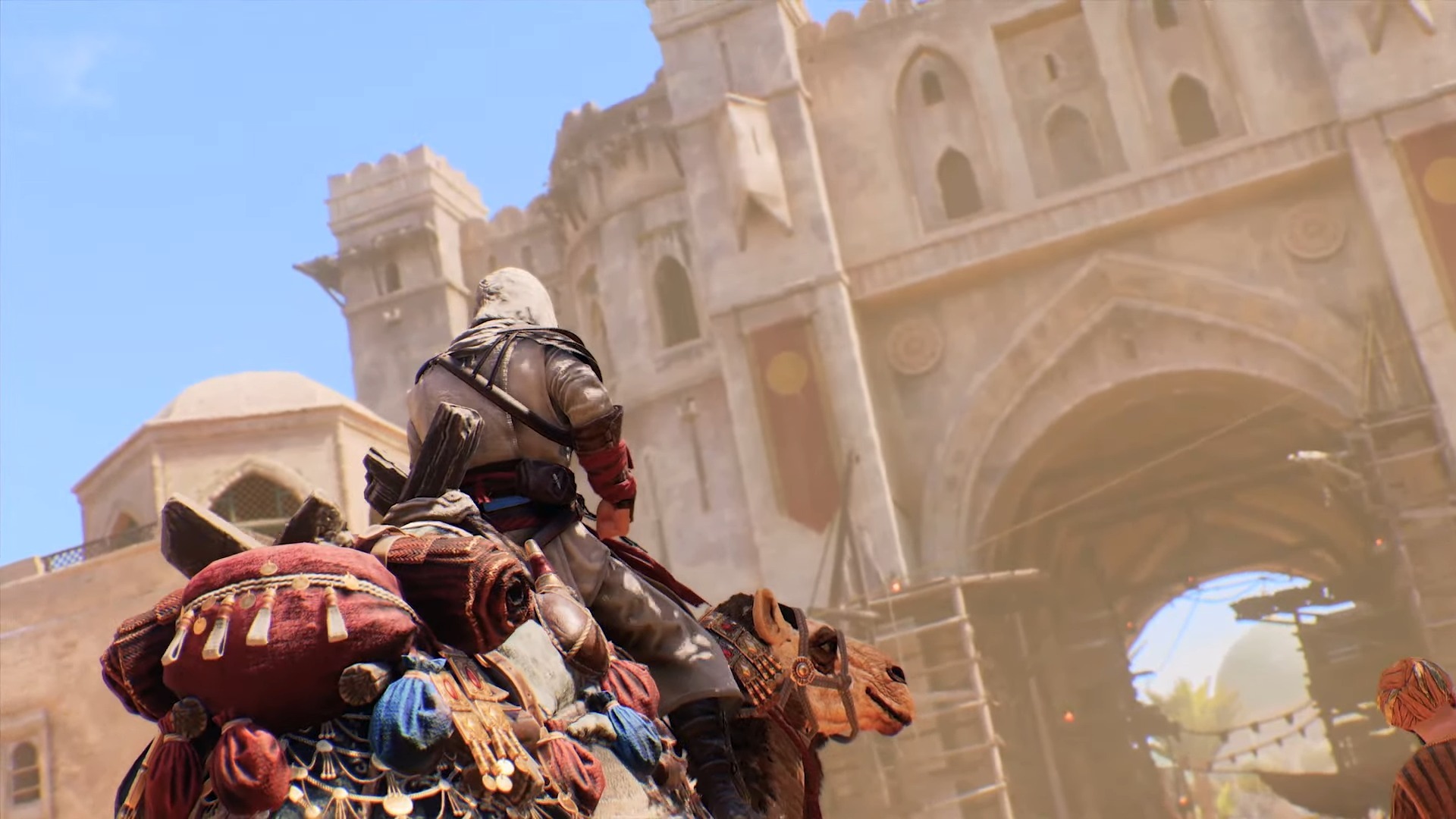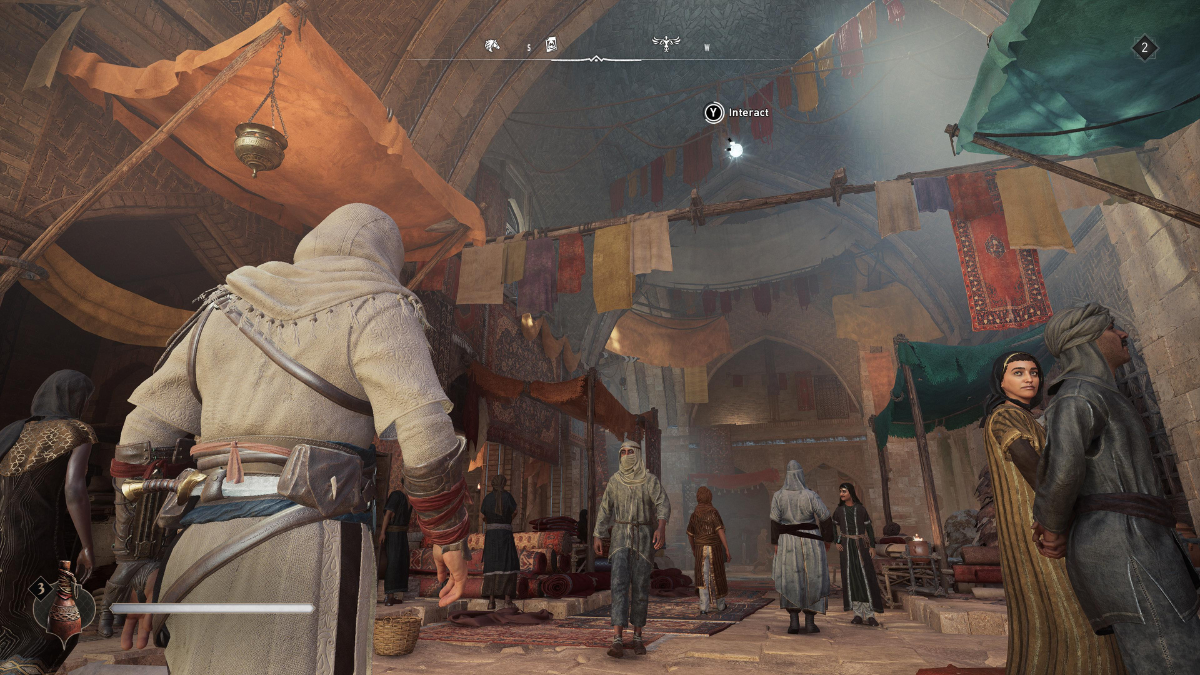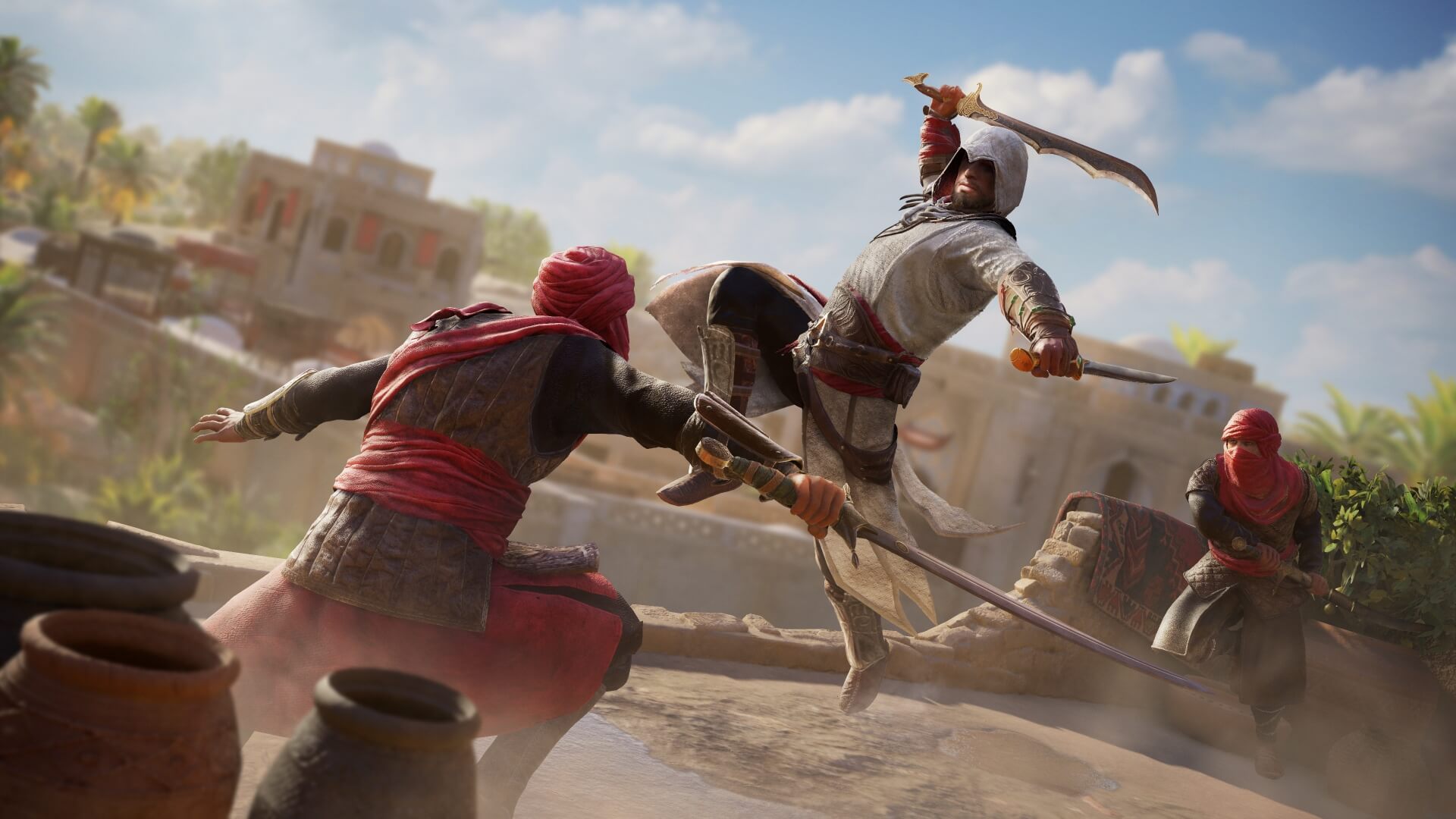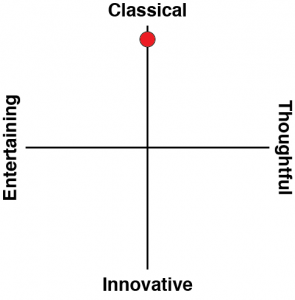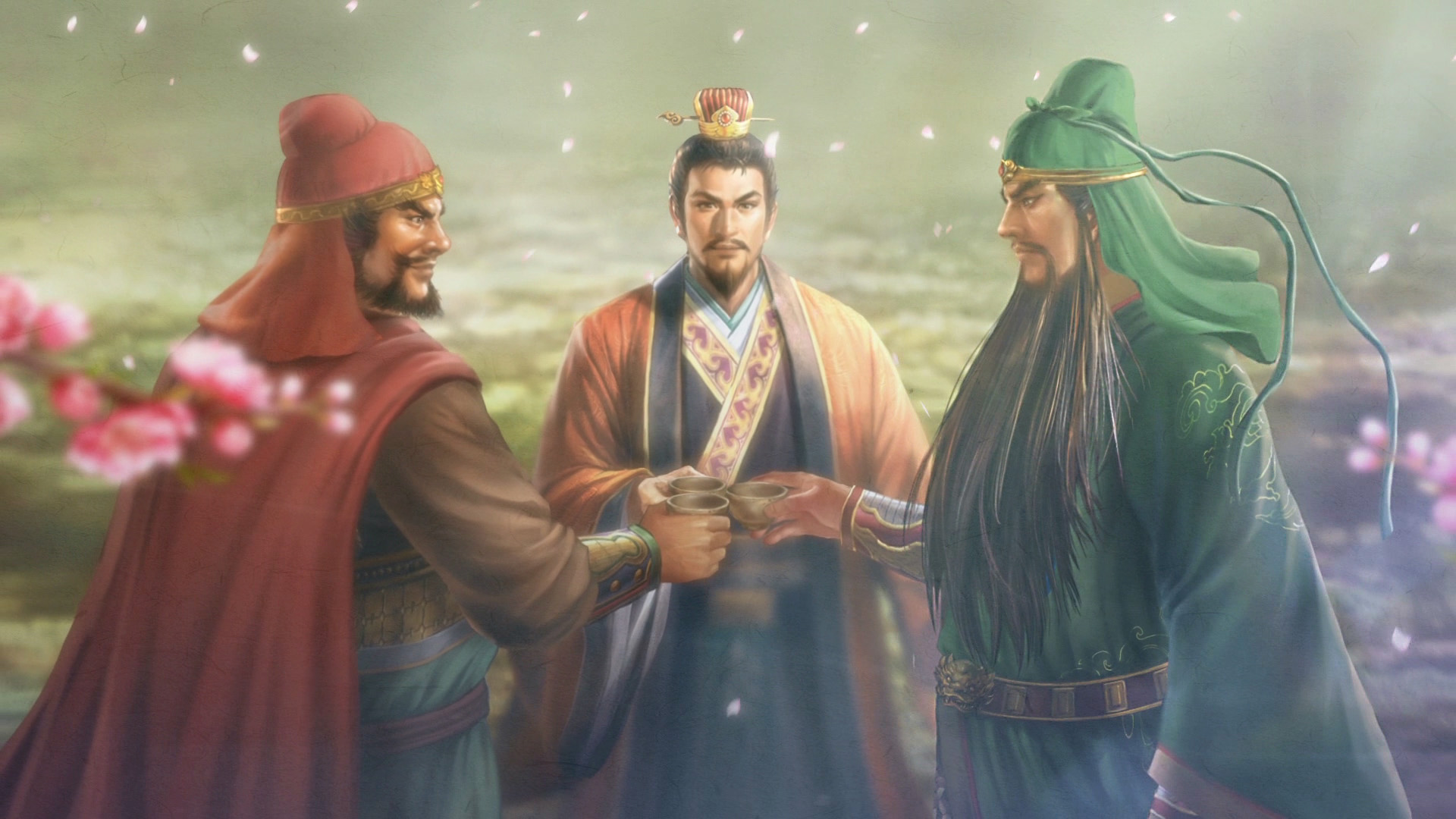Assassin’s Creed: Mirage is what all Assassin’s Creed games should be: Uncomplicated. As I’ve regularly repeated over the years, Assassin’s Creed is my one blockbuster vice, and I love the series despite it being increasingly representative of so much of what I dislike about AAA games. But this one brings things right back to the core, and I’ve enjoyed it so much more as a result.
More recent Assassin’s Creed titles have really pushed my patience to the breaking point. I loved a lot about Valhalla because it is one of the (very) few attempts to provide a nuanced vision of old Scandinavian cultures. And yet, I also had to wade through so much content nonsense and bloat to get to the bits I liked. While Ubisoft would have been encouraged by far too many people cheering on the 100+ hours of content, despite only a fraction of that actually adding anything to the core vision of the game’s narrative, after that one, I was fully prepared to wash my hands of this series. That game exhausted me.
But then the promo material promised that Assassin’s Creed: Mirage would be a “return to classic” Assassin’s Creed, so I gave the series one more chance. I’m glad it did. While many compare it to the very first few Assassin’s Creed titles, in my view Mirage is perhaps best compared to Assassin’s Creed: Liberation, despite its setting being akin to that of the genesis of the series. It has a fairly linear and narrow focus that does away with the icon-obsessed bloat of the more recent entries. Instead, you get to enjoy a fairly well-paced bit of historical fiction in a playfully recreated old Baghdad.
Assassin’s Creed at its best, like Samurai Warriors, Dynasty Warriors, or any authentic historical strategy game, encourages people to learn about its setting and the various names that the game drops along the way. Given current real-world events in the Middle East, and the way that people are responding to them, anything that helps people understand the cultures and histories of the people of that part of the world is a good thing indeed, and I enjoyed the historical presentation of Mirage. Indeed, historical fiction is a very good way to humanise people and cultures, and raise awareness in a way that promotes empathy and understanding. As novelist, Jewell Parker Rhodes said: “I love historical fiction because there’s a literal truth, and there’s an emotional truth, and what the fiction writer tries to create is that emotional truth.
Assassin’s Creed: Mirage takes one of the Western world’s great “boogeymen,” – the city of Baghdad in Iraq, and highlights the rich history and culture from that ancient city. Is it real history? No. But the appearance of real historical figures, and the generally authentic presentation of the city as just that, a city of people from all walks, helps to make the entire environment relatable. From there, in capturing the emotional truth about the Middle East that Rhodes talks about, hopefully some people will be inclined to see the human side of the rest of the Middle East, too.
And for people that are inspired to learn more about the history after playing Mirage, there is a gallery function that fills with notes as you progress through the game. I wasn’t a big fan of the way that the historical notes were “side quest” unlocks, since I would rather have them integrated into the game in a way that people can’t avoid them (yes, I’m all for forcing people to learn stuff), but the team at Ubisoft really did do a good job with the way this material is presented.
Each time you unlock a historical note, you’ll get a decent chunk of writing to explain and contextualise it. You’ll also see images associated with the entry, and those images are properly referenced to the museum that holds the relevant artifacts. We’re not talking about a history degree’s worth of material here, but pay attention and you’ll walk out of Assassin’s Creed Mirage with the equivalent experience of wandering around a reasonable-sized museum. If only there was an exhibition book in the gift shop at the end of your “tour”… I always love buying those (actually, I shouldn’t give Ubisoft more ideas for milking money out of players).
As someone reasonably familiar with Middle Eastern history and its leading political figures, artists, and so on, I still found some useful pointers in the notes to further my own learning. I know I’ve written a lot here just on the history angle, but it is a key feature in Assassin’s Creed, and Mirage really shows how far the developer has gone from using history as the backdrop for playful gameplay, to taking some responsibility for its potential to educate while entertaining.
Sadly, as strong as the historical context is, Mirage is flat as a narrative. You spend most of the time following a series of breadcrumbs, with each major character you bump into being a plot point that barks your next set of instructions. There are moments where you could see the writers aiming for something. For example, the relationship between the protagonist, Basim, and Nehal, is one where childhood sweethearts sour after a tragedy splits them. However, none of this is explored quite as well as it should have been, and it seems the Ubisoft narrative team struggles when asked to be brief.
This is why the game reminds me most strongly of Liberation. Basim, like Liberation’s protagonist (Aveline), is a character I desperately want to know better. He’s charismatic and interesting, and also serious enough to have had something to say. He also feels undercooked and more like a tool to push action than anything creative. Like Basim, I wanted to get to know Aveline so much better, and she at least had various gameplay mechanics, like her ability to swap between costumes, that gave her character some kind of identity that we could muse on. Basim comes across as a generic Assassin’s Creed Boy, and doesn’t manage to go further than that.
Though at least he does sound the part, thanks to a full Arabic voice track. I genuinely love that Ubisoft went to the effort there. With historical fiction, the only way to experience it is in the proper language, with subtitles. I appreciated when Koei Tecmo started adding Chinese voice tracks to Dynasty Warriors, and I appreciate Ubisoft for giving us the chance here. Arabic’s quite a beautiful language on the ears, and we very rarely get to enjoy that in games.
With regards to the gameplay, I very much enjoyed the return to uncomplicated Assassin’s Creed. There are no experience levels, complex skill systems, or anything else. The main gameplay sequences involve scouting out some fortified den or soldier-filled restricted area, and then methodically working through it, assassinating or bypassing guards, pickpocketing keys, and then finding either the key person you’re meant to assassinate, or some token or document that will lead you to your next objective.
Some of the earlier quirks of Assassin’s Creed show up here in a way that the more complex “RPG Creeds” hide with their more involved systems. For example, if you’re spotted in the middle of a den, and manage to get out, all you need to do is move out of sight and wait for all the guards to forget you. Then they’ll go back to their set patrol routes and behaviours… even if that involves them walking over the dead bodies you’ve already killed. They’ll just forget that you were ever there and that they’re stomping over the face of their former comrade.
That’s always been a quality of Assassin’s Creed, but as stealth has become less of a critical feature, and being discovered is really just an excuse to start the real slaughter, it’s been less overt. Here, though, you’re going to need to revert right back to the old tactics, and the generally poor stealth of the series is more stand out for it. I love it, though. It’s immersion-breaking, sure, but it allows stealth to be a puzzle without being too punishing on people who aren’t great at stealth systems (people like me).
When you do find yourself in a combat situation, one-on-one, it’s dynamic and exciting. The parry and riposte systems are timed perfectly, and enemies have a well-balanced ability to throw in unblockable attacks, forcing you to keep on your toes and exercise some twitch response to keep yourself out of danger.
Things do break down when there’s more than one combatant, however, as targeting can become a touch imprecise and things can get a little too busy for what is meant to be a combat system of focus and precision. Still, if you play it right, you shouldn’t encounter too many situations where you’re up against a hoard.
Finally, the cities of the Middle East – especially Baghdad – is ideal for Assassin’s Creed. The narrow alleys and tightly concentrated buildings provide a labyrinth that’s a joy to traverse, whether on the ground or across rooftops. It would be possible to become disoriented by these chaotically winding streets, but Basim has an eagle that can be called at will to give him a top-down view of the map to re-orient himself. Additionally, the bird can highlight and then pinpoint key parts to explore. Markers not only show up on the compass at the top of the screen, but are also represented with a column of light that extends into the sky, making it very easy to track, no matter how many detours you make along the way.
Assassin’s Creed: Mirage is a return to form for the series. What had become a formula so bloated that it lost sight of what actually made the series good has been simplified to make it more engaging. What you get here is an efficient and clean historical action game. One that gives you the chance to explore a less-travelled part of history from a part of the world that people are usually too busy demonising to explore as a setting. Ubisoft would benefit from writers who understood how to convey narrative efficiently, but in every other way the more focused and streamlined experience that Mirage offers makes it the most cohesive entry in this series for a very long time.
